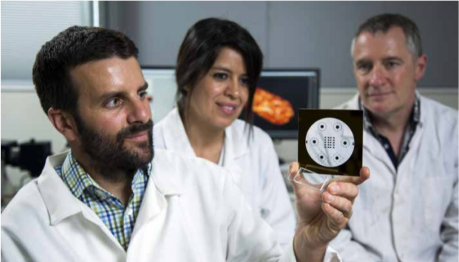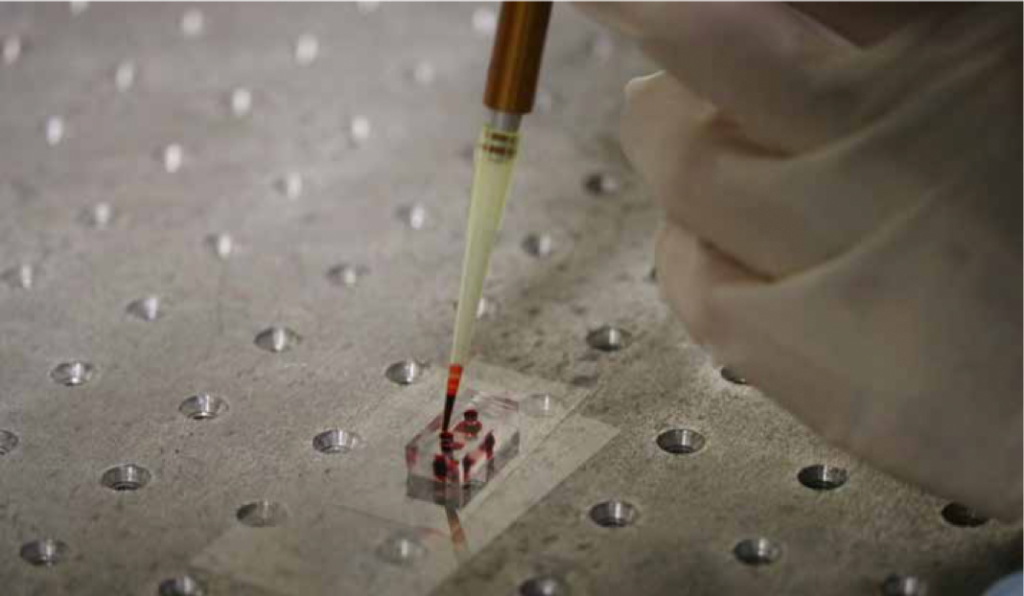Protecting our native trees with lab-on-a-chip research
10 October, 2019

MacDiarmid Institute Principal Investigator Dr Volker Nock has been awarded a Rutherford Discovery Fellowship to help eradicate fungi that spread disease to our native trees.
Here in New Zealand, our native trees are currently under threat from two pathogens - an oomycete (water mould) called P. agathidicida, which causes Kauri dieback, and A. psidii, the fungus behind myrtle rust.
With support from the Rutherford Discovery Fellowship, Dr Nock will work on developing lab-on-a-chip devices to understand how these pathogens locate and infect their target, a key step towards eradicating them.
To understand how pathogens push their way through a plant’s cell wall to infect them, Dr Nock is using his lab-on-a-chip to monitor how much pressure fungi exert as they grow.
The device consists of a series of channels thinner than a human hair. As the fungi and oomycetes grow, the channels guide them towards force-sensing pillars that measure the forces exerted by the living organism.
According to Dr Nock, this ability to measure forces at a nanoscale could also have applications for developing our understanding of human disease.

Dr Nock is a Senior Lecturer in the Department of Electrical and Computer Engineering, and Co-Director and Principal Investigator of the Biomolecular Interactions Centre at the University of Canterbury. He holds a Dipl-Ing degree in Microsystem Technology from the University of Freiburg, Germany, and a PhD degree in Electrical and Electronic Engineering from the University of Canterbury.
Managed by the Royal Society Te Apārangi, the Rutherford Discovery Fellowship supports New Zealand researchers in the beginning and middle of their career to help develop them into future research leaders.
Volker Noch will receive $800,000 over the next five years for his research titled ‘Electrotaxis and protrusive force generation in fungal and oomycete pathogens - Pathways to new biocontrol strategies.’
“If the lab-on-a-chip works, it will be so exciting and could have a huge impact.”
Dr Volker Nock Principal Investigator The MacDiarmid Institute
More information
For more information on Dr Nock's Rutherford Discovery Fellowship award:
- Rutherford Discovery Fellowship recipients - Volker Nock - The Royal Society of New Zealand, 10 October, 2019
- UC researcher awarded $800,000 fellowship to save kauri from attack - The University of Canterbury, 10 October, 2019
For more information on Dr Nock's research:
- How an engineer and a biologist could help with kauri dieback and myrtle rust - Stuff, 14 June, 2019
- Feeling the force of fungi to stop it killing our forests - The Spinoff, 20 November, 2018


